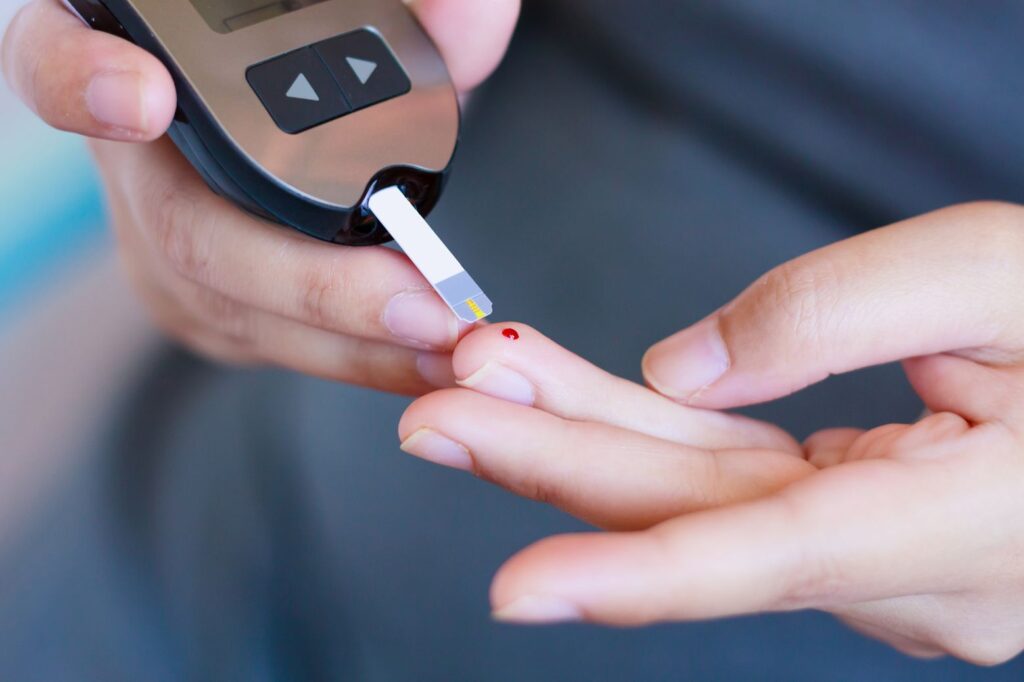
Tooth loss can detract from your daily quality of life because tasks that were once considered simple, like eating, speaking, and smiling, suddenly are much more challenging. Your dentist can place dental implants to fill in the gaps in your grin, but before you can proceed, they must ensure you’re a good candidate.
Unlike dentures and dental bridges, implants involve surgically placing a titanium rod in your jawbone. If you have another medical condition, like diabetes, that might interfere, your provider might not approve your procedure. Continue reading to learn more about it!
What is Diabetes?
People with this condition suffer from abnormally high blood sugar (glucose) levels due to their body’s insulin production. There are two main types, and they are:
- Type 1: This autoimmune disease causes your body to mistakenly attack and destroy insulin-producing cells in the pancreas, leading to a hormone deficiency that allows glucose to build in the bloodstream.
- Type 2: This is the most common type, and occurs when your cells don’t absorb insulin sufficiently and become resistant, causing the pancreas to overcompensate by producing more glucose that can’t be taken up.
Both versions significantly impair your immune system because the high sugar levels damage blood vessels, causing them to narrow and slow the flow of oxygen and other nutrients needed for recovery.
How Does Diabetes Impact Dental Implants?
Many experts consider dental implants the ideal way to replace missing teeth because of their unique advantages. They include a titanium rod placed directly in your jawbone to function like a root. After your procedure, it can take three to six months to heal because your jaw must produce enough new bone growth to fuse with the biocompatible metal.
Because diabetes affects your body’s ability to mend itself, it takes longer to heal. That means you’re less likely to complete this essential stage of recovery, decreasing the likelihood of successful treatment. Furthermore, diabetics are at a higher risk of developing gum disease, like peri-implantitis, which is the number one leading cause of implant failure.
Can Diabetics Get Dental Implants?
Plenty of people with diabetes often also struggle with tooth loss, but wonder whether their chronic condition precludes them from getting implants. The answer depends significantly on your unique circumstances, the state of your smile, and the severity of your disorder. Thankfully, there are things you can do to improve your chances, such as:
- Addressing your diabetes. Your doctor will likely recommend a combination of medications and lifestyle changes, like diet and exercise, to improve your overall well-being.
- Improving oral hygiene. You’re more likely to develop cavities and periodontal problems with diabetes, so brushing and flossing twice daily to remove plaque and bacteria that contribute to common issues is imperative.
- Treat gum disease. You might need to undergo additional services to strengthen your connective tissues, like antibiotic therapy or scaling and root planing.
If you’re unsure whether dental implants are right for you, consulting your dentist is the best way to find out!
Meet the Author
Dr. Kamlesh Makwana has nearly 30 years of experience helping families build and maintain happy, healthy smiles. He earned his Doctor of Dental Surgery from Marquette University and completed a General Practice Residency and Fellowship at the Barnes-Jewish Hospital/Washington University. Today, he offers a complete array of services to meet all your needs conveniently under one roof, including dental implants. He has the specialized training and state-of-the-art technology necessary to provide each step of the process in the office, including oral surgery, to streamline your experience. If you have diabetes and need to replace missing teeth, you can request a consultation on the website or call (636) 928-9693.
